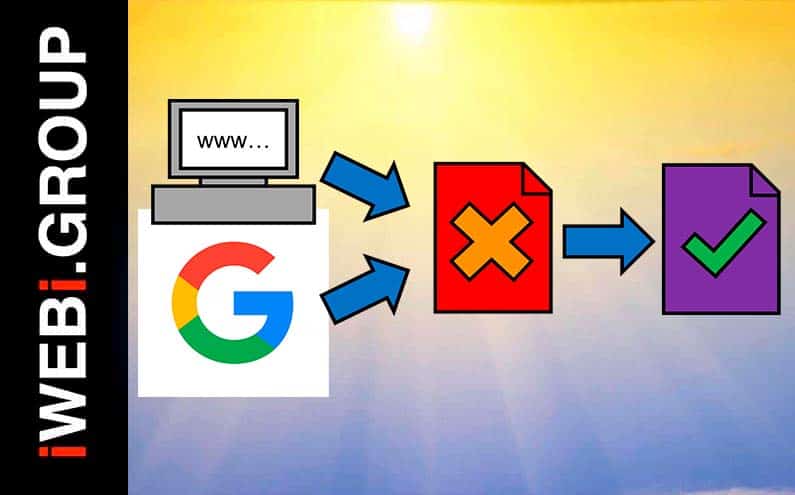URL redirection, also called URL forwarding, is a World Wide Web technique for making a web page available under more than one URL address. When a web browser attempts to open a URL that has been redirected, a page with a different URL is opened. Wikipedia
When can a redirect hurt your SEO strategy?
One of the most common problems that can be found on any website are error pages. They occur for various reasons, such as high server load, also known as “500 errors,” or requests for pages that cannot be found on the site – “404 errors.”
404 errors make up a significant percentage of all web page errors. Whether it’s a small site or a well-established site, there will always be a chance that users will come across it on a regular basis. These error pages not only interfere with the user experience, but are also harmful to your SEO. The best way to solve the problem of error pages is a redirect (301 redirect), which helps to lead users to the right place.
While a 301 redirect is a handy solution that ensures you don’t lose PageRank, there are times when it can backfire. Here’s what you need to know about the possible negative effects of redirects.
Impact on download speed
The main purpose of a redirect is to help users get to the content they would like to see or pages with relevant or updated content. This is a common practice for websites that have updated or are looking to improve their content to optimize performance. Redirects not only affect the user experience and traffic to the content – the presence of a large number of redirects can lead to some decrease in download speed.
Since download speed is an important ranking factor for both computers and mobile devices, those few seconds really matter, as wasting just a few moments can cost you precious traffic. While the purpose of a redirect is to help users access your content, a large number of such redirects can cause your site to load slower. While redirects are hard to avoid, it’s best to make sure you’re still able to optimize your loading speed by using AMP integration and caching tools that will surely help your rankings.
Landing page redirects are another problem that should be avoided as much as possible; this can negatively impact traffic as well as the conversion completion process. Along with landing pages, redirecting most of your pages to the home page is also discouraged, as this will only confuse Google and result in losing some of your hard-earned traffic due to content redirects. Instead, a better approach is to redirect them to related content, which increases the chances of getting more traffic to the new page.
Redirect chain
Even though multiple page redirects are common for some sites, in some cases chains of redirects are created. These chains come about when the main and target URLs have more than one redirect link. Redirect chains can be created for a variety of reasons, with content and site updates being the most common.
While 301 redirects still retain their PageRank, having a redirect chain will affect the ability of the Google bot to crawl your site. If the chain consists of 4-5 links, Google crawler will be less likely to crawl the last pages, and in some cases will not crawl the page at all. The value of a link can also decrease due to long chains of redirects, with a percentage lost with each successive redirect.
If your website has long chains of redirects, we recommend that you start cleaning them up as soon as possible, especially on old web pages that have been redirected for a long time, which can make it difficult for traffic to get to the old content. Optimizing this process will make positive changes to your traffic levels and search rankings, as well as allowing the Google bot to crawl every page evenly, providing enough link value.
Key takeaway
While redirects help users and saves a lot of your PageRank, having an excessive or chaotic set of redirects can negatively impact page performance and affect how Google crawler crawls your site. Knowing when to use and not to use the correct form of redirects is critical to your SEO success.
Redirects are a vital part of SEO.
You need to use redirects whenever you change the location of a web page. If you don’t, users and search engines will not be forwarded to the new one, and this in itself can cause SEO issues as well as cause customers to drop off.

